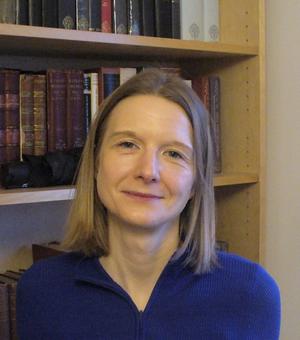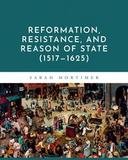Professor Sarah Mortimer
I am an early modern historian, especially interested in the relationship between political thought and religious ideas. I focus on a period when new ideas about salvation, about political life and about what it means to be human began to be expressed; after Martin Luther, Niccolò Machiavelli and Christopher Columbus the intellectual, political and religious landscape looked very different. My research looks at how people sought to understand, explain, and shape their world in this fascinating and complex period.
Research Interests
I have recently completed a book on the history of political thought 1517-1625, entitled Reformation, Resistance, and Reason of State (Oxford, 2021). I show that this period was crucial for the development of political thought – in a time of expanding empires, religious upheaval, and social change, new ideas about the organisation and purpose of human communities began to be debated. In particular, there was a concern to understand the political or civil community as bounded, limited in geographical terms and with its own particular structures, characteristics and history. There was also a growing focus, in the wake of the Reformation, on civil or political authority as distinct from the church or religious authority. The concept of sovereignty began to be used, alongside a new language of reason of state – in response, political theories based upon religion gained traction, especially arguments for the divine right of kings. More broadly, the language of natural law became increasingly important as a means of legitimising political power, opening up scope for religious toleration.
My book draws on a wide range of sources from Europe and beyond; in it I make connections between Christian Europe and the Muslim societies that lay to its south and east. One of the most interesting questions as I researched it was the extent to which concerns about the legitimacy of political power were shared by people of different faiths. For me, one of the joys of intellectual history is the way it challenges us to cross geographical and religious boundaries.
Developing some themes from the book, I have also looked recently at the importance of religious practice for community formation, a subject of growing interest today but on which there was sustained and explicit reflection in the early modern period. I have published and forthcoming articles on Catholic views of the role of sacrifice in the creation and maintenance of human societies and on the piety, public and private, of the Antitrinitarians.
I have also written a number of articles which explore themes of ethics, politics, and religion in the early modern period, often reconsidering canonical figures like Thomas Hobbes, John Locke, and Hugo Grotius in the light of their religious and political context. My work on Grotius in particular shows how he used the writings of Catholic theologians and of radical Protestants to offer a new and highly influential account of natural law and its relationship to Christian ethics. Through Grotius I have become interested in seventeenth-century efforts to balance Protestant commitments with a new interest in moral responsibility and human liberty, especially in the circles around Grotius and Locke – this is the focus of my current research.





